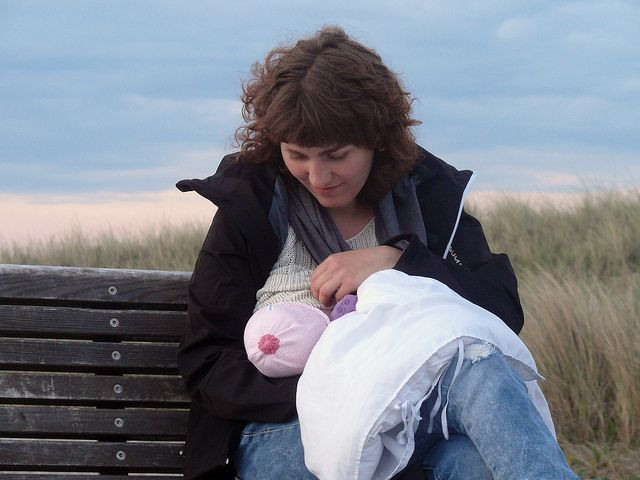Instagram Now Allows Breastfeeding, Mastectomy Photos In Community Guidelines

On the heels of Facebook’s March decision to let users post photos of breastfeeding and sculptures depicting nudity, Instagram has amended its own Community Guidelines. Nudity of a sexual nature is still prohibited, but breastfeeding, mastectomy scars, and artistic representations are now fair game.
“Instagram is a reflection of our diverse community of cultures, ages, and beliefs,” the photo sharing company explains in its Guidelines. “We’ve spent a lot of time thinking about the different points of view that create a safe and open environment for everyone.”
As American culture gets further enmeshed in social media, the companies that control which posts are acceptable and which are indecent must confront a far wider scope of content. For one, mastectomy rates have been climbing for the past several years, regardless of whether women need the surgery or not.
This is in part a self-fulfilling loop, as more women are inclined to make the leap if someone close to them has already done so. It’s also a product of celebrity endorsement. In 2013, Angelina Jolie underwent a preventive double mastectomy because she carried the BRCA1 gene, which increases a woman’s risk for breast cancer. Not all women who carry the gene need to undergo such aggressive surgery, however, leading to the oft-cited “Angelina Jolie Effect.”
Social tides are also shifting. Once denounced as an indecent public act, breastfeeding is creeping back into mainstream acceptance, both at work and in daily life. However, many still equate the act with other bodily processes, ones that are hardly appropriate for public discourse, and so they relegate breastfeeding to the confines of home life. Instagram’s policies appear to agree with the former camp. Taking breastfeeding out of the company of “sexual intercourse, genitals, and close-ups of fully-nude buttocks,” and categorizes it instead as a normal part of human living.
If people still object to the photos, Instagram offers a suggestion. “You may find content you don’t like, but doesn’t violate the community guidelines. If that happens, you can unfollow or block the person who posted it, and if there's something you don't like in a comment on one of your posts, you can delete that comment.”
Published by Medicaldaily.com



























